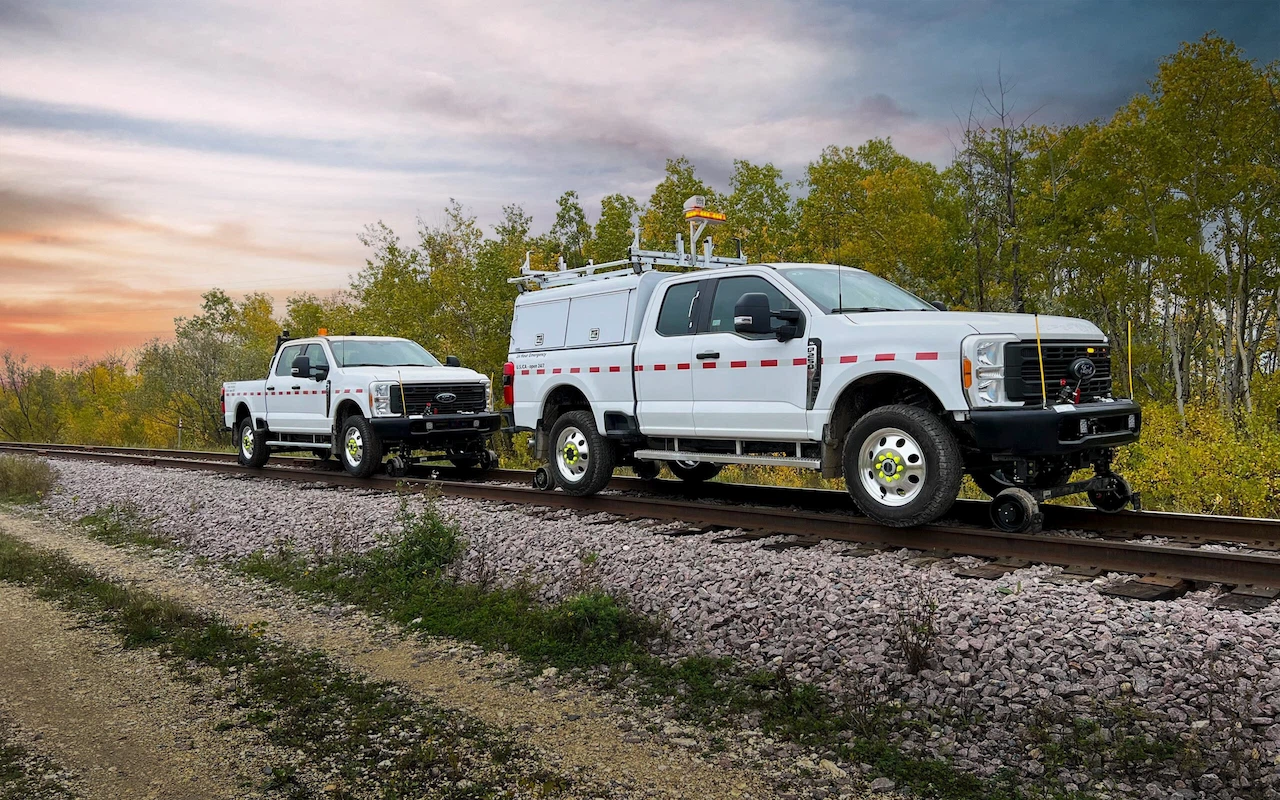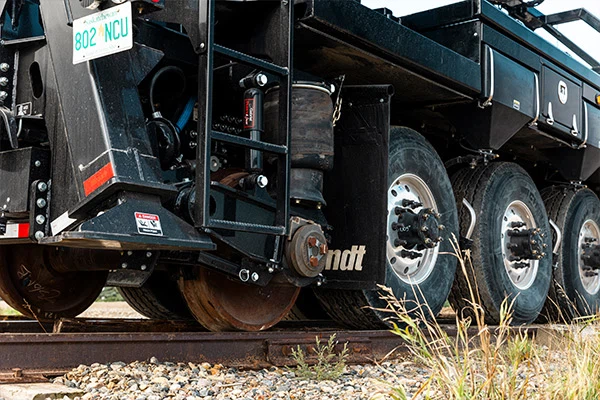Involves the specialized maintenance and repair of "hi-rail" vehicles, which are trucks or utility vehicles equipped with special gear to operate on both roadways and railway tracks. Because these vehicles face the dual stresses of road and rail travel, servicing is critical for safety, regulatory compliance, and operational reliability. The process includes routine inspections, hydraulic and rail gear maintenance, and general vehicle upkeep.



Call to schedule your High Rail inspection or service today!